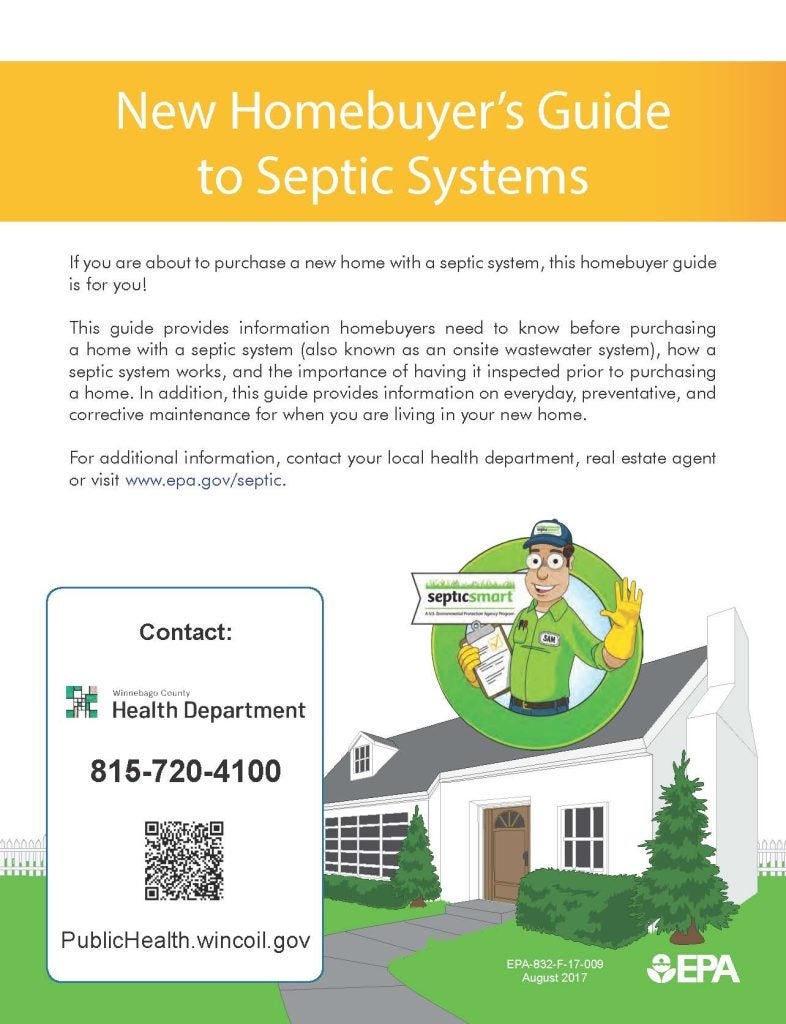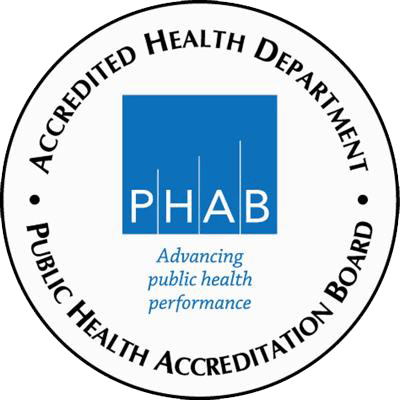Know Your Water and Sewage System (Private Wells & Septic)
Whether you own or rent a property, it is important to know if your home has a private well and septic system or if you are connected to a municipal water and sewage system.
You most likely have a well if:
- The water line coming into your house does not have a meter and you do not receive a water bill.
- You locate a well cover or cap in your yard
You most likely have a septic system if:
- You do not receive a wastewater bill
- Your neighbors have a septic system
- You live in a rural area
- You are on private well water
If you have a private well and septic system, there are steps to take to protect this system and your drinking water.
How Do I Care For My Well?
Know Your Well
- Locate and check well cover or cap for damage
- Well casing must be:
- at least 8” above the ground surface
- free from wood chips, soil, brush, or leaves
- Prevent landscaping from creating a bowl effect or an area that promotes a home for insects or animals
Maintain Your Well
- Test your well ONCE A YEAR for contaminants, such as coliform bacteria, nitrates/nitrites, and any other contaminants of local concern
- A professional contractor should check your well ONCE A YEAR for any mechanical problems
- Call a professional for any problems
How Do I Care For My Septic System?
Find Your Septic
- Looking at the “as built” drawing for your home’s septic system, which you can request from your local health department
- Checking your yard for inspection caps, lids, or manhole covers
- Work with a septic system service provider who can help locate the system
- Ask your realtor or seller
Everyday Care For Your Septic
Most common household items can either clog your system or kill the microbes that treat the wastewater.
- Only allow biodegradable wastes into your septic system
- Don’t flush or dump sanitary napkins, tampons, disposable diapers, condoms, wipes, cat litter, cooking grease, coffee grounds, solvents, oils, paints, paint thinners, disinfectants, pesticides or poisons into your system
- Stagger the use of appliances, use high efficiency plumbing fixtures, and repair any leaks in your home
- Don’t use a garbage disposal unless your septic tank was sized to handle the additional waste
Drainfield Care
- Locate and keep your septic tank cover accessible
- Identify, locate, and care for your drainfield
- Ensure only grass is planted on or near
- Plants, trees, or shrubs planted too close can grow into your system and clog it
- Do not install sprinkler system heads
- Do not park, drive, or build on your drainfield as it can damage the drain lines.
- Ensure only grass is planted on or near
Maintain Your Septic
The average lifespan of a septic system is 15 to 40 years, but it can last longer if properly maintained.
- Have your system inspected every 3 years by a licensed contractor
- Have your tank pumped, as necessary, generally every 3-5 years
- If your system has an effluent filter have it inspected and cleaned ONCE A YEAR
- Call a professional for any problems
Other Tips for Caring for a Wells and/or Septic System?
- Divert down spouts and other surface water away from your well and septic system
- Water conditioning or softening equipment should be approved for use with your system
- Conserve water to reduce the amount of wastewater that is treated and disposed
- Stagger use of water-generating appliances
- Repair leaking faucets and toilets promptly
How Do I Know If My Septic System Is Not Working Properly?
There are a few signs of a septic system malfunction
- Wastewater backing up or gurgling into household drains
- A strong odor around the septic tank or drainfield
- Bright green, spongy grass appearing on the drainfield
If you discover any of these warning signs, call a septic system service provider immediately
Before Making Changes Or Additions To House Or Yard...
Any additions or changes to your house or yard can cause issues for both your well and septic.
Consult with an Illinois licensed septic contractor and well contractor, or the Winnebago County Health Department prior to any changes.
WCHD Can Assist With identifying the location of private well and septic systems when new construction will be taking place (site verifications). This helps ensure that the new construction won’t encroach or otherwise affect the existing water or sewage systems.
Site verifications are required for any property with a private well or septic system when conducting work that requires a building permit, however Site Verifications are useful while planning other building or landscaping projects as well.
Have septic systems inspected before you purchase a home. WCHD conducts INSPECTIONS required by a mortgage or banking institution when issuing a loan for a property on a private well and/or septic system.
For site verification applications, site verification applications, or contractor licensing please click here.
CLOSING YOUR PRIVATE SEPTIC SYSTEM
Upon connecting to a public sewer system, your septic tank or seepage pit, must be eliminated properly under the guidelines of the Winnebago County’s “Private Sewage Disposal Code.” A licensed plumber is need and must follow these regulations when closing a septic tank:
- Must be properly pumped by a licensed septic pumper/cleaner
- Collapse top and one side of septic tank to insure no water will collect
- Immediately filled with sand, gravel, or similar material
If you have any questions about this enforceable regulation, please contact WCHD’s Center for Environmental Health.


